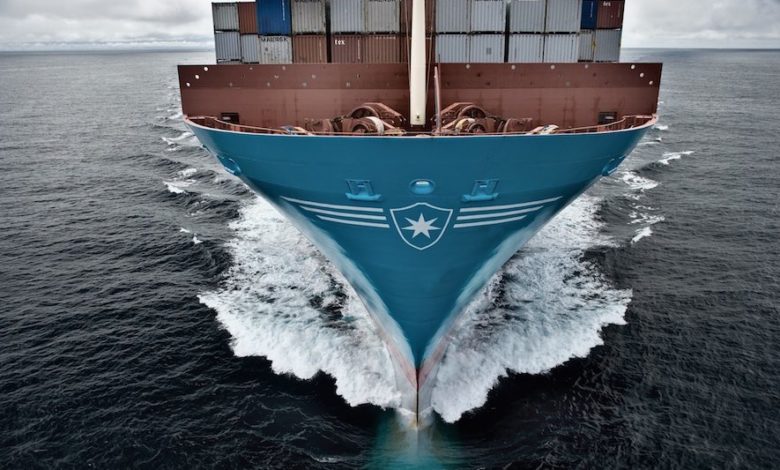Maersk backs BIMCO ship power limits proposal

There is now a united front coalescing against slow steaming with Maersk coming out in support of BIMCO’s proposal to limit ship’s power systems as a way to cut greenhouse gas emissions in the short term.
Maersk had earlier been supporting a goal-based plan to slash the industry’s carbon footprint, but facing a growing coalition of slow steaming supporters it has come out in favour of the BIMCO proposal, which is similar to an idea mooted by Japan at an IMO meeting earlier this year.
“Focusing on power instead of speed limitation will, first and foremost, help to achieve the CO2 reduction goals set by the IMO. Next, it will reward the most efficient ships and last but not least, it will stimulate the necessary innovation in the development of CO2-neutral propulsion technologies needed to truly decarbonise shipping,” Maersk wrote in an email to Maritime Denmark.
A power limiter, not dissimilar to those used in automotives, was promoted by the Japanese delegation at the IMO’s Marine Environmental Protection Committee (MEPC) meeting in April.
“Measuring a ship’s speed is not an accurate exercise, therefore, other avenues have been investigated. It has been concluded that limiting ships’ propulsion power can be controlled accurately and at the same time, it has a close correlation to speed,” BIMCO stated in a release on Monday outlining its proposal to IMO ahead of a technical meeting at the London UN body to discuss GHG cutting measures.
The slow-steaming debate is being led by French president Emanuel Macron with the backing of more than 120 shipowners. Macron brought up the subject while hosting the G7 summit in Biarritz last month.

….but is it safe? I recall earlier in my career a series of underpowered vessels which became infamous for founderings in heavy weather due to lack of ME power compared with their loaded displacement. If industry takes the BIMCO route will it give licence to underpower vessels in the name of the environment, forgetting that safety should be paramount.